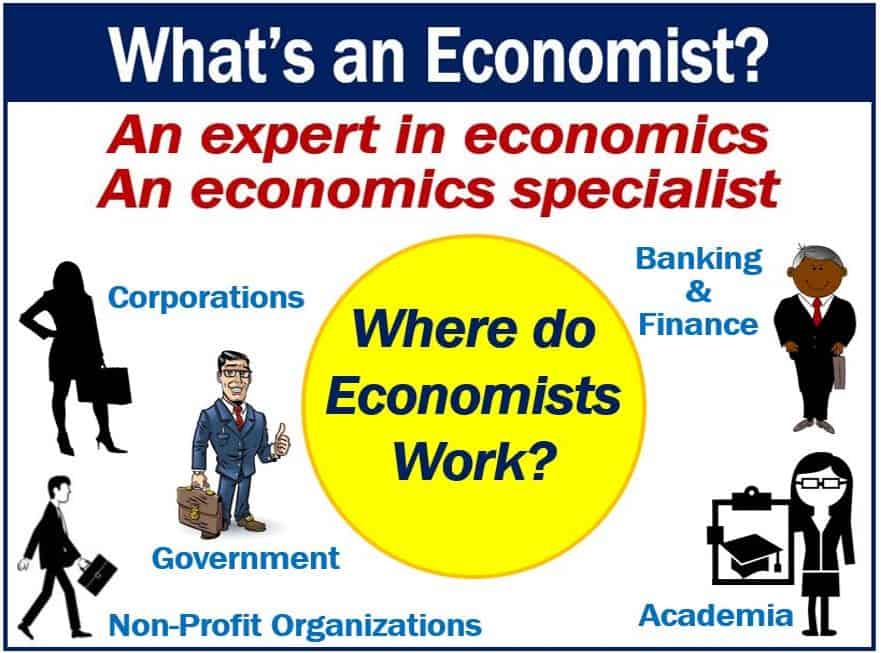An economist is an economics expert, i.e., somebody who specializes in economics. An economist may also study, develop, and apply economic concepts and theories and write about economic policy.
Economists are people who study the production and distribution of resources, products, and services; in other words, the economy. Economics is a social science that describes the factors that determine the production, distribution, and consumption of products and services.
An economist may study historical trends. He or she may subsequently use those trends to make forecasts. They use a variety of software programs to research and analyze data. In many cases, they present their research and findings to audiences.

Where does an economist work?
An economist may work in a company, non-profit organization, or education. They may also work in banking or a government department.
Corporations or for-profit organizations
A company whose principal goal is to generate profit is a for-profit organization.
Corporations require people who can develop, analyze, and promote economic data and ideas. According to Forbes magazine, technology companies are particularly keen on hiring economists.
Companies that focus on professional services, such as PwC and Ernst & Young have economists in their workforce. So do multinational companies, market research organizations, newspapers, and other news organizations.
Non-profit organizations
A non-profit agency may need an economist for a variety of reasons. Non-profits need financial projections to keep themselves alive. They depend on individual, public, and private funding.
When applying for funding, they need economists to gather and analyze data and present it.
Government
The US Bureau of Labor Statistics says that there are economists in local, state, and federal government.
A federal government economist may, for example, gather and analyze data about the US economy. They will look at all types of data, including employment figures and trends, prices, productivity, and wages.
Economists in government also project expenditure needs and inform lawmakers and policymakers on the impact of laws and regulations. Specifically, their economic impact.
Britain’s Government Economic Services (GES) is the professional body for economists in the UK public sector.
Banking
An economist may be part of a bank’s markets and investment research team. One of the major roles of an economist in banking is to analyze all the economic data that countries, companies, agencies, etc. publish.
After analyzing the economic data, they then explain what the implications might be. Specifically, what the impact might be on the markets.
In banking and finance, economists may present their research, findings, and suggestions to investors, sales teams, traders, and others.
The heads of large financial institutions need to understand economics. They also need to have the latest economic data. They rely on economists for that data.
Education and academia
An economist in academia can focus on teaching and research. An economics professor’s time may be split equally between teaching students and carrying out research.
However, this ratio can change, depending on the institution and the interests and preferences of the economist.
